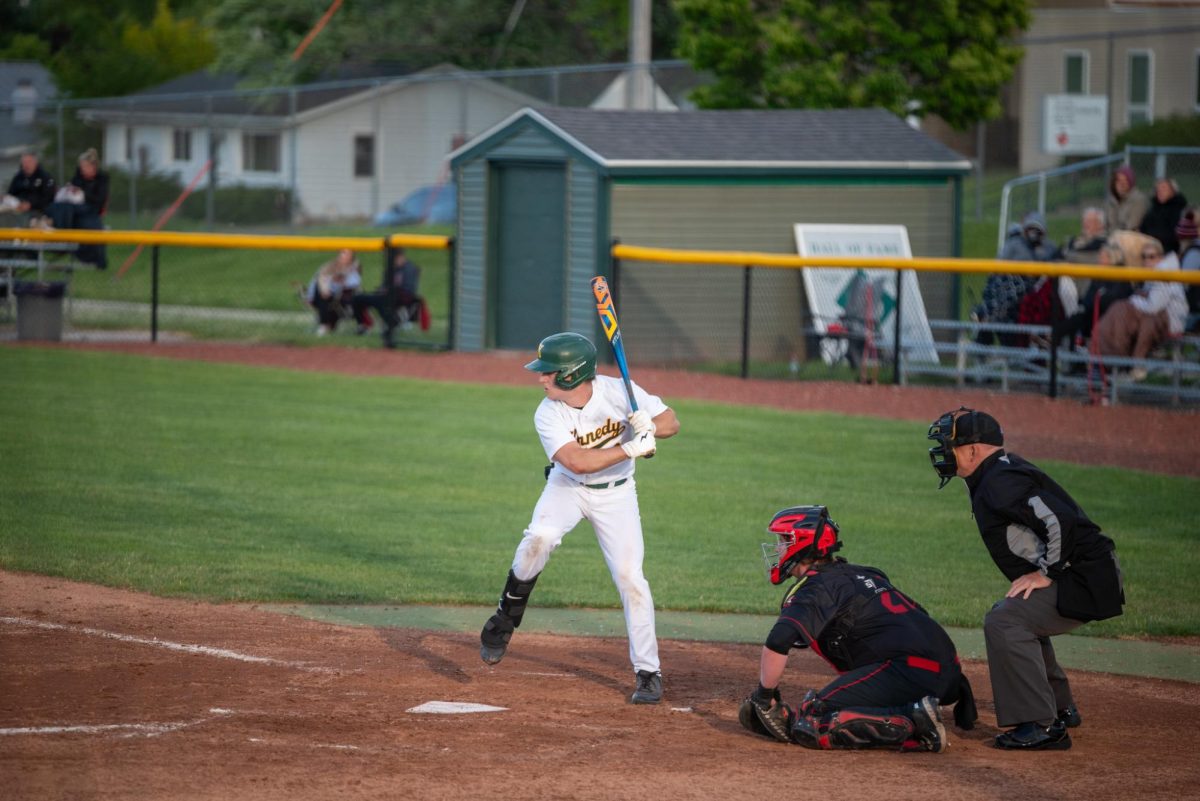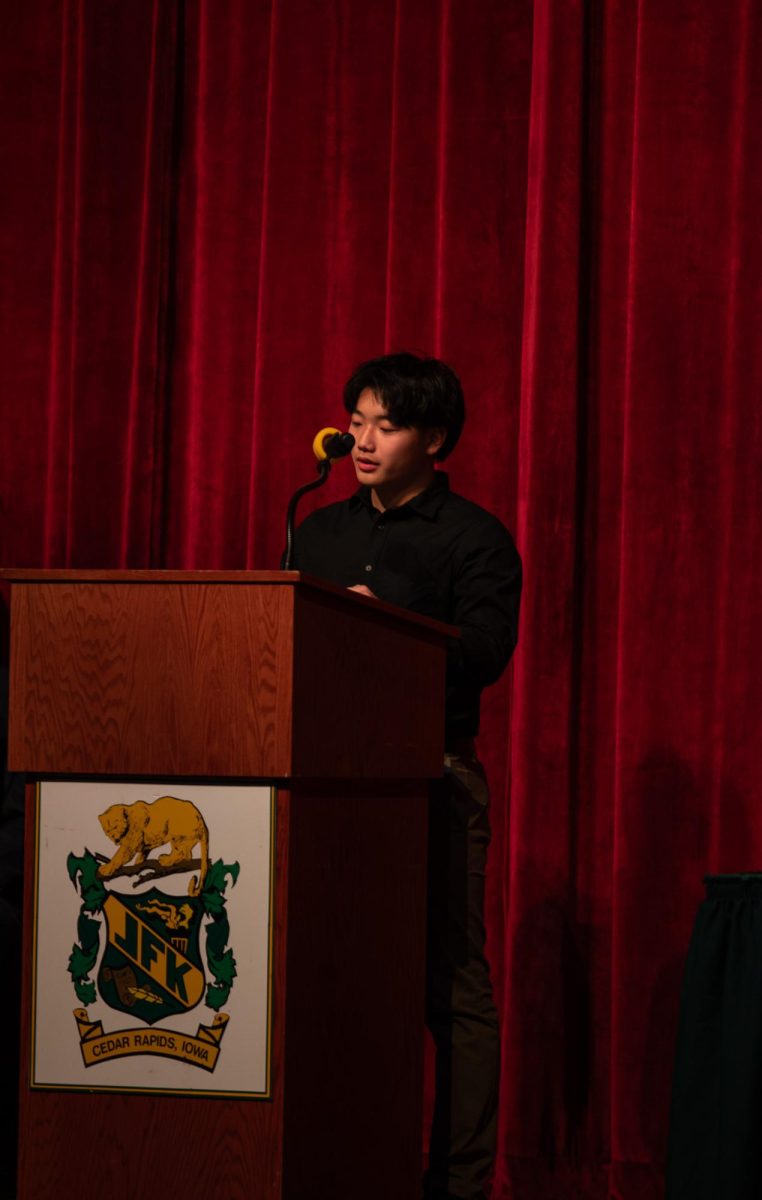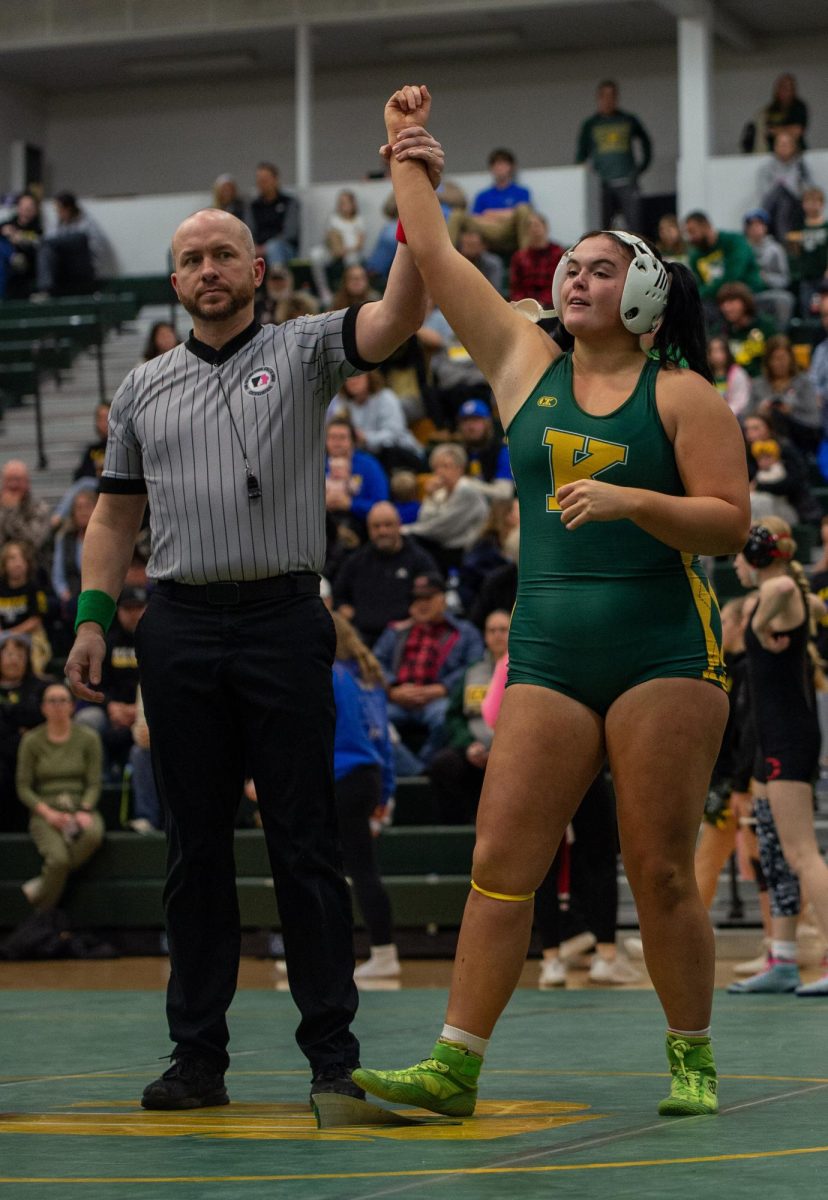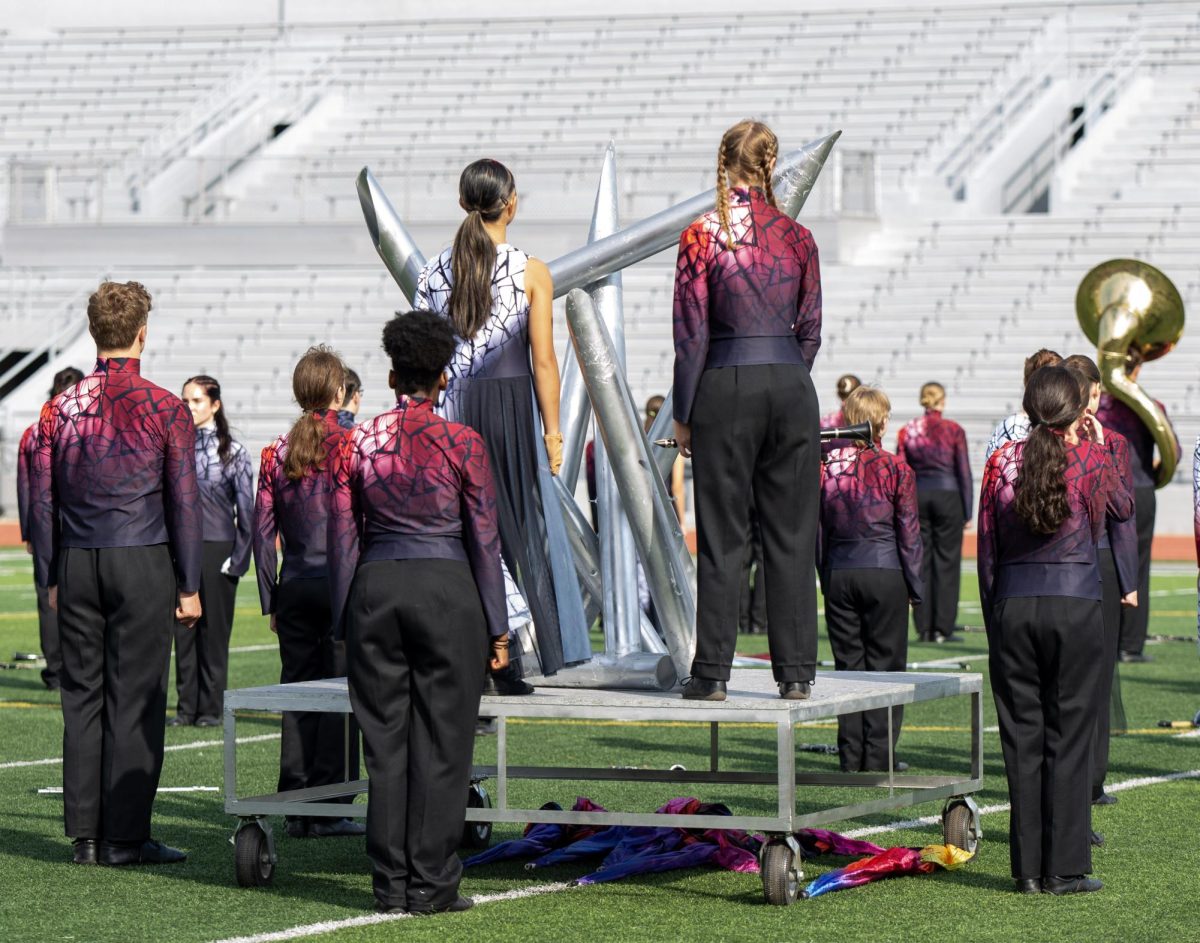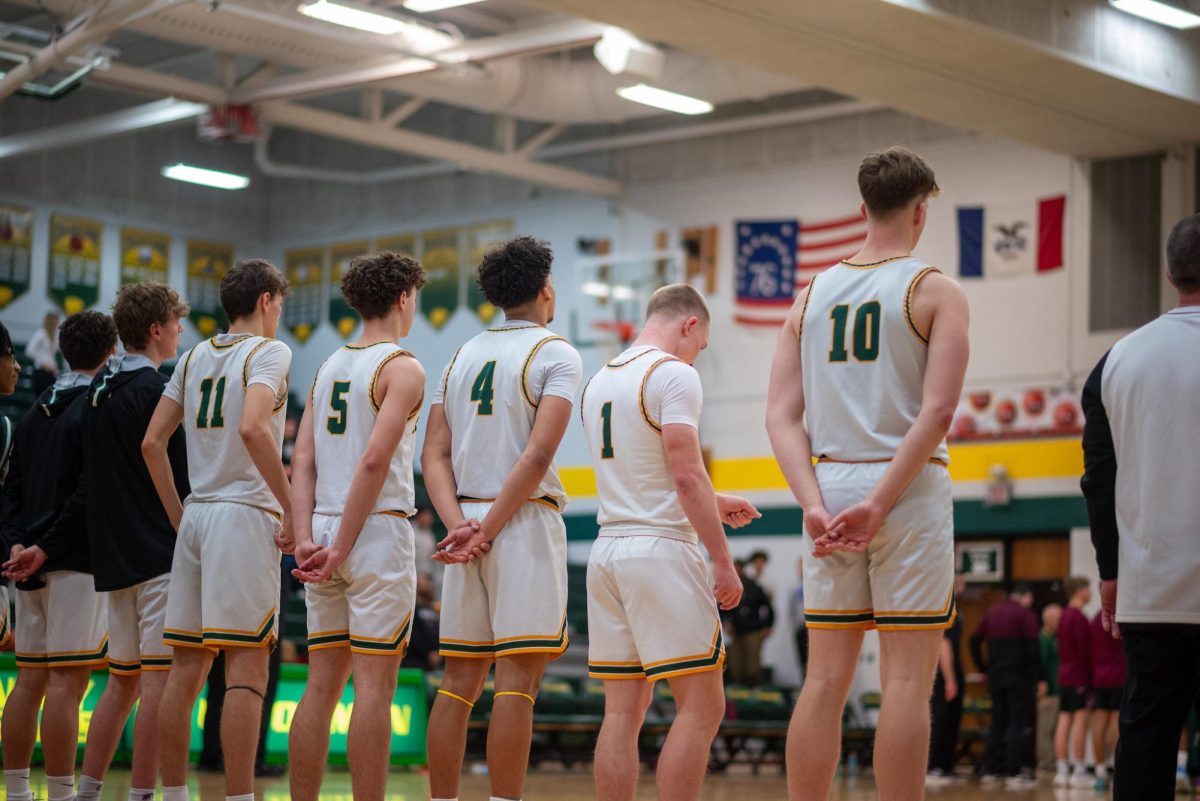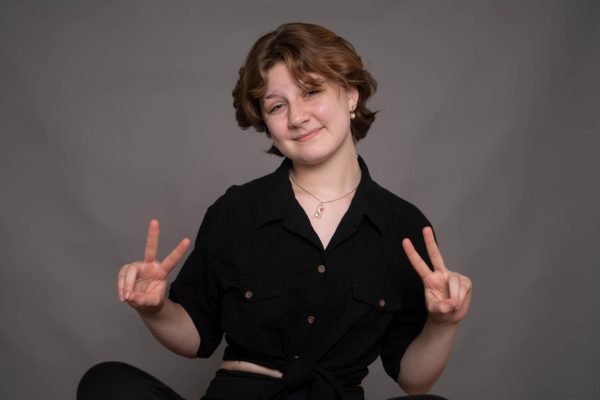The Daily Dilemma: Social Media’s Grasp On Us
TikTok is a time sink for a number of users, designed to be addicting.
July 21, 2023
Admit it, social media is used by everyone. Whether we like it or not, it’s an integral part of our lives. We’ve reached a point where there isn’t a way to reverse its effects; it’s something we may live with our whole lives.
With apps such as BeReal sparking in popularity, encouraging users to post photos “in the moment,” we’re fed a fake solution to a problem that needs a real one. More social media apps aren’t going to help our usage of current ones.
But it’s hard to cut back when algorithms adapt to its user, providing content that appeals to its target audience. Apps send unnecessary notifications to ensure you keep interacting. They benefit from this by acting as a slot machine, people will pick up their phone if there’s a chance they have a notification. We get rewarded with a hit of dopamine, encouraging us to keep scrolling or watching.
This makes it harder for users to quit.
Say you went a day without its addictive methods, how would you adjust? How would that affect your mood? Does social media have such a hold on its users that it could change how we are if we went without?
We’ll look for ways to fill the time wasted scrolling. When we eliminate that from the equation, we’ll find ourselves searching for how to occupy our brains, since our attention span is less than a goldfish. Estimated at about 8.25 seconds, 4.25 seconds shorter than in the 2000s, humans aren’t giving ordinary tasks the time of day.
“We have this thing in our brain called the dopaminergic pathway, so when you feel rewarded…you get this hit of dopamine and that becomes addictive,” Dana Melone, AP Psychology teacher said. “And studies already show that when we get a like, we get a hit of dopamine, when we hear a notification, and so on.”
Without social media apps such as Instagram, Snapchat or Twitter, we’d lose that glimpse inside others’ personal life. Our brains are trained to compare ourselves to others’ appearance, their hobbies and how they’re portrayed online.
Stress, anxiety, depression and other mental health risks come with trying to come off as perfect and meet unattainable standards set by influencers. It’s affected kids, trends and adults. We’re all at risk. Imagine the weight that’d be lifted off our shoulders if we didn’t have to wake up to see how faultless and admirable our idols are.
“The way we see people or celebrities online affects how we compare ourselves to people in real life, it brings out the worst in us. Yet we all do it,” junior Keaton Buhrmester said.
If we don’t have to pick ourselves apart anymore, what can we do then? Try to socialize with those in real life? How many times do you hang out with your friends and you end up browsing on your phones for a good chunk of time? Before you know it, two hours have gone by and you have to go home.
Social media has the power to separate us from real-world interactions like hanging out with our friends. We can go online and talk to anyone we want, but the chances of us going out to socialize or communicate face-to-face are slimming. Spending our time communicating with those online drains our energy to talk to real friends.
Without social media, it may be difficult to keep up with long-distance friends, family or even romantic partners. In a fast-paced world, we’d lose the ease and convenience of sending a text or FaceTiming, instead resorting to sending a letter that could take weeks to get a response. What if these quick online interactions are slowly pushing us apart rather than bringing us closer?
“One thing it’s doing is it’s allowing us to be lazy in our communication,” Math teacher Kyle Clark said. “Instead of making sure we communicate face to face not knowing when we’ll see that person again, we think ‘If I want to I’ll just text them,’ which has let us become lazy in our relationships.”
As well as lazy interactions, we’ve resorted to holding others accountable on apps such as Twitter or Instagram. Anyone has the power to do it whether it’s with something they said in 2009, or did yesterday at a party.
Are those celebrities, online figures or even mutuals actually learning from the consequences of their actions over a measly tweet? Social media has allowed us to force forgiveness or halfhearted, insincere apologies from those in the limelight. Take that away and now we’re left to develop and better ourselves face to face, without the screen to shield us from the difficulties of trying.
“There should be more room for forgiving people…they are able to grow and change but you have to be able to change without needing public approval,” said Buhrmester.
The apps we know and love have done nothing but prevent us from making the change we really need—to regulate our intake and stop relying on mindless entertainment, to be in the moment. Living life through our online presence has a greater effect than we think.

